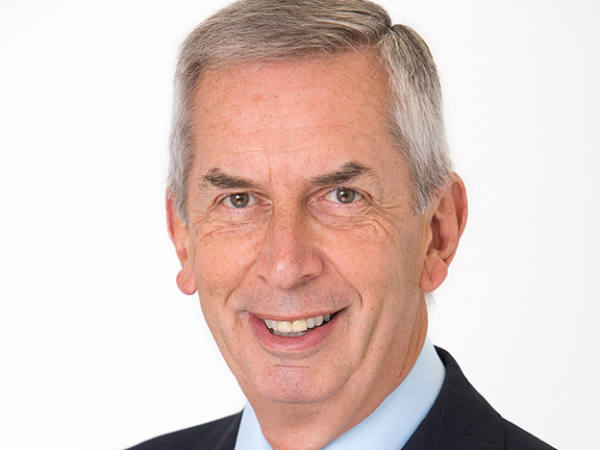It is important to diversify the equity portions of portfolios geographically, and overseas developed equity markets can play a role in doing this in many types of growth investors' portfolios. Although these countries do not have the economic growth potential of some emerging economies, companies listed on their markets can deliver very strong growth – especially smaller ones. Some of the world’s leading companies are listed on markets in Europe, while good Japanese companies and funds have made strong returns. And although in recent years active funds have struggled to beat large mainstream US indices such as the S&P 500, there are some that do, such as the one highlighted below. There are also areas of the US market, such as smaller companies, where active managers are able to add value.
BlackRock European Dynamic (GB00BCZRNN30)
BlackRock European Dynamic has an outstanding performance record but much of this was generated during the tenure of lead manager Alister Hibbert, who left the fund at the end of last year. The fund is now run by Giles Rothbarth, who had been co-manager alongside Hibbert between February 2019 and the start of this year.
The departure of the manager of a successful fund is never good news, but Rothbarth had worked with Hibbert on the fund since 2015 and is a senior member of BlackRock’s Fundamental Active Equities Financials research group. He also runs other funds, such as BlackRock Continental European (GB00B4VY9893) since 2017, and has worked at BlackRock since 2010.
When Mr Hibbert’s departure was announced last year, Becci McKinley-Rowe, co-head of Fundamental Equity at BlackRock, said: “The Fundamental European Equity team is focused on delivering alpha. Our ability to do this consistently has been driven by a focus on the development of strong talent over many years and close teamwork across our range of products. Giles Rothbarth [has taken] on expanded portfolio management roles in recognition of [his] strong performance and increased experience.”
Juliet Schooling Latter, research director of FundCalibre, said: “Giles Rothbarth has been co-manager for 18 months and is another impressive manager from a very strong BlackRock European team who stands out from his peers. I have no concerns about the manager change.”
Rothbarth looks to invest in companies that are undervalued and/or have good growth potential. Although BlackRock European Dynamic can invest in companies of all sizes, it tends to focus on larger ones, which accounted for over three-quarters of its assets at the end of July. The fund’s largest holdings at the end of July included ASML (NET:ASML) and LVMH Moet Hennessy Louis Vuitton (FRA:MC) which accounted for 7.01 per cent and 5.99 per cent of its assets, respectively.
Marlborough European Multi-Cap (GB00B90VHJ34)
Marlborough European Multi-Cap invests in companies of all sizes but has a bias to smaller companies, which accounted for about 59 per cent of its assets at the start of August, including 16 per cent in microcaps. Its manager, David Walton, and his team aim to invest in undervalued businesses that they think have above-average growth potential. They maintain a list of 240 companies which they think are promising potential investments, out of a potential universe of 3,700, and the fund holds around 90 of these.
They tend to select companies on the basis of their individual merits rather than due to sector or geographic considerations. But Walton aims to reduce volatility by ensuring that the fund is well-diversified by industry sector and geography.
The fund’s largest holdings at the end of July included sauna company Harvia (FIN: HARVIA) and software company Sesa (ITA:SES) which accounted for 5.3 per cent and 4.2 per cent of its assets, respectively.
Walton also thinks that the quality of a company’s management team is very important and aims to meet them at least once a year.
This investment approach has resulted in strong returns for the fund, which has a good record of outperforming broad European indices such as FTSE Europe ex UK and MSCI Europe ex UK, smaller companies indices and other Europe ex UK funds.
| Cumulative total returns | ||||
|---|---|---|---|---|
| Fund/benchmark | 1yr (%) | 3yr (%) | 5yr (%) | 10yr (%) |
| BlackRock European Dynamic* | 43.41 | 71.65 | 135.58 | 373.27 |
| Marlborough European Multi-Cap | 61.23 | 77.37 | 143.01 | 399.42 |
| IA Europe Excluding UK sector average | 27.07 | 31.53 | 66.53 | 186.54 |
| FTSE World Europe ex UK index | 27.38 | 34.46 | 71.82 | 184.11 |
| MSCI Europe ex UK index | 26.20 | 31.46 | 65.26 | 165.29 |
| Source: FE Analytics as at 31 August 2021 | ||||
| *The history of this unit/share class has been extended, at FE fundinfo's discretion, to give a sense of a longer track record of the fund as a whole | ||||
Artemis US Select (GB00BMMV5105)
Artemis US Select is a rare example of an active US equity fund that beats the S&P 500 index most of the time. It also has a good record of beating the Investment Association (IA) North America sector average. Between the start of this year and late August, the fund was slightly behind the S&P 500 index albeit with a double-digit return of nearly 16 per cent against 19 per cent for the index.
The fund was launched in 2014 but its manager, Cormac Weldon, has a much longer record of outperformance: he previously ran the Threadneedle American (GB00B7T2FK07) and Threadneedle American Select (GB00B7HJLD86) funds, the latter for over 12 years. During that time, he beat the S&P 500 and the IA North America sector average with a return of 84 per cent, against 64 per cent and 51 per cent, respectively. He has over 20 years’ experience and has invested through many market cycles.
Mr Weldon and his team pay as much attention to evaluating potential financial, market and economic risks as they do to investment opportunities. They invest in stocks where they think the potential upside greatly outweighs downside risk. They also take a pragmatic approach, changing their focus as the economic and market cycle changes. So, for example, if growth stocks are doing well they invest in them and if there is an opportunity for value to outperform they aim to hold those types of stocks.
Examples of holdings at the end of July include Google owner Alphabet (US:GOOGL), transportation company Norfolk Southern (US:NSC) and home improvement retailer Lowe’s (US:LOW).
JPMorgan US Smaller Companies Investment Trust (JUSC)
JPMorgan US Smaller Companies Investment Trust aims for growth by investing in smaller companies that its managers, Don San Jose, Daniel Percella and Jonathan Brachle think have sustainable competitive advantages and a successful record. They like to invest in businesses they believe are good quality but trading at a discount to their intrinsic value, and have strong management teams who are good stewards of capital.
Its largest holdings at the end of July were Willscot Mobile Mini (US:WSC), a provider of modular space and portable storage solutions, and electronic components producer Power Integrations (US:POWI), which each accounted for 1.7 per cent of its assets.
The trust has had a good record of beating its benchmark, the Russell 2000 index, in most years so has also made good cumulative total returns over the long term. However, over the first half of this year the trust underperformed the Russell 2000 index’s 16.2 per cent return with a NAV total return of 10.9 per cent.
Part of the reason for this was because stocks that don’t pay dividends and/or are lower quality outperformed the types of quality stocks JPMorgan US Smaller Companies Investment Trust focuses on. But the trust’s managers commented in August: “Despite the risk-on rally of lower-quality stocks, we remain confident that fundamentals will return to favour as we move deeper into the recovery. We are staying true to our process, focusing on quality businesses at reasonable relative valuations, taking advantage of any weakness as opportunities to add to the names we think will benefit the most in the long term. We continue to focus on finding companies with durable franchises, good management teams and stable earnings that trade at a discount to intrinsic value.
“This year, we have added slightly more cyclicality to the portfolio in select names across consumer discretionary and industrials while also adding to other names we like on weakness with strong secular tailwinds. However, the portfolio's positioning remains relatively unchanged. Our main exposures are in the industrials and financials sectors which make up over 40 per cent of the portfolio.
“We expect a strong rebound in company earnings for the remainder of 2021. The companies we invest in [should] be able to navigate inflationary pressures from higher prices well and future upside should be driven by earnings.”
Analysts at Numis Securities said: “It is unsurprising that there was a period of underperformance in a strong market led by cyclical and low-quality stocks which rallied strongly. The managers’ bottom-up process is focused on quality US companies with resilient franchises and growth potential, and the [trust] typically outperforms in tougher market conditions and lags in strong market rallies. Performance has relatively improved since 30 June.
“JPMorgan US Smaller Companies has an impressive track record since 2008 under JPMorgan Asset Management’s small cap core team in New York, headed by San Jose. JPMorgan US Smaller Companies is an attractive way to gain exposure to US small caps [via] an experienced team.”
San Jose will become chief investment officer of JPMorgan Asset Management’s US value team on 1 October and his team, which helps him manage the trust, will also move across to this group. However, JPMorgan US Smaller Companies Investment Trust’s board says that they will continue to manage the trust in the same way.
| Cumulative total returns | ||||
|---|---|---|---|---|
| Fund/benchmark | 1yr (%) | 3yr (%) | 5yr (%) | 10yr (%) |
| Artemis US Select | 23.48 | 52.14 | 134.67 | |
| S&P 500 index | 25.71 | 47.21 | 98.25 | 338.99 |
| IA North America sector average | 27.74 | 49.82 | 106.01 | 349.22 |
| JPMorgan US Smaller Companies Investment Trust share price | 43.15 | 31.97 | 110.54 | 459.03 |
| Russell 2000 index | 42.67 | 26.83 | 82.83 | 307.63 |
| Source: FE Analytics as at 31 August 2021 | ||||
Baillie Gifford Japan Trust (BGFD)
Baillie Gifford Japan Trust aims for growth over the long term by investing principally in medium to smaller-sized Japanese companies. Its manager, Matthew Brett, and deputy manager, Praveen Kumar, invest in companies they think have above-average prospects for growth due to innovative business models, disrupting traditional Japanese practices or opportunities such as growth from overseas. They aim to take a three- to five-year view with their investments and typically hold between 40 and 70.
“The managers share the typical Baillie Gifford approach of tending to run with successful investments if their investment case remains intact,” comment analysts at Charles Stanley. “They pay less attention to current valuation and more to long-term potential value, so there tends to be relatively little turnover of stocks in the portfolio. The focus on growth results in a higher-risk collection of holdings, which is exacerbated by gearing (borrowing to invest).”
The trust is also well-diversified across industry sectors. The trust’s largest holdings at the end of July were telecoms company Softbank (JAP:9984) and internet services provider Rakuten (JAP: 4755) which accounted for 4.4 per cent and 3.6 per cent of its assets.
Baillie Gifford Japan Trust’s investment approach has worked well over the years and it has made good returns. Much of this was under the management of Sarah Whitley, who ran it between 1991 and the end of April 2018, although Brett and Kumar are also experienced investors with longer-term track records of running other funds. Baillie Gifford funds are also run very much via a team approach rather than by just one manager. And, so far, the trust is still performing well with its NAV total returns ahead of the Topix index in 2019, 2020 and over the first seven months of this year.
FTF Martin Currie Japan Equity (GB00B8JYLC77)
FTF Martin Currie Japan Equity, which was called Legg Mason IF Japan Equity before Legg Mason was acquired by Franklin Templeton last year, has an outstanding performance record. It beats the Topix index and IA Japan sector average over most time periods, so is often among the top-performing funds in its sector.
Its manager since 1996, Hideo Shiozumi, invests according to a thematic bias driven by Japan’s economic position, although picks companies on the basis of their own merits. He thinks that Japan is in the process of moving from being a regulated to deregulated economy, and from a manufacturing to service-orientated economy. So he seeks to exploit the investment opportunities that this throws up.
FTF Martin Currie Japan Equity is focused on domestic-oriented sectors that Shiozumi and his team believe will be major beneficiaries of work-style reforms. These include medical and nursing care services, consumer lifestyle and internet-enabled companies. The fund’s holdings at the end of July included Nihon M&A Center (JAP:2127) and healthcare company M3 (JAP:2413), which both accounted for over 7 per cent of its assets.
At the end of July, the fund had around half of its assets in mid-caps and about 43 per cent in larger companies, according to fund research company Morningstar.
However, while FTF Martin Currie Japan Equity has made excellent long-term returns, it can undergo periods of extreme volatility and underperform. For example, the fund made a total return of 40.5 per cent last year but as of late August this year was down nearly 9 per cent. Similarly, it returned 24.9 per cent in 2019 after having fallen 10.6 per cent in 2018. And its 10 largest holdings accounted for over half of its assets at the end of July, meaning that the largest positions' returns could have a significant impact on the fund’s overall returns.
So if you invest in this fund you need to be able to tolerate bouts of volatility and, as with all equity funds, have a minimum investment time horizon of at least five years.
| Cumulative total returns | ||||
|---|---|---|---|---|
| Fund/benchmark | 1yr (%) | 3yr (%) | 5yr (%) | 10yr (%) |
| Baillie Gifford Japan Trust share price | 25.66 | 20.69 | 99.41 | 436.40 |
| FTF Martin Currie Japan Equity | 14.61 | 35.86 | 104.29 | 587.79 |
| IA Japan sector average | 18.26 | 19.21 | 53.87 | 163.71 |
| Topix index | 15.87 | 14.32 | 45.42 | 153.27 |
| Source: FE Analytics as at 31 August 2021 | ||||











